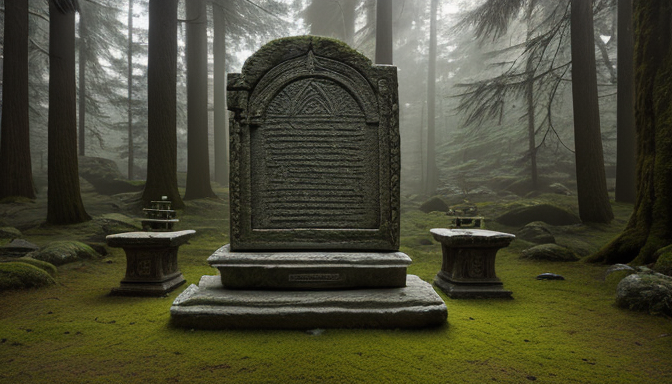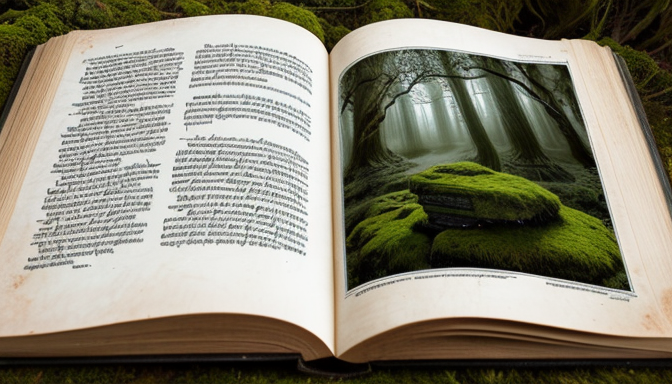Have you ever wondered why ancient lore continues to captivate our hearts and minds? These stories, steeped in mystery and magic, are not just relics of the past; they are vibrant threads woven into the fabric of our cultural identities. From the epic tales of gods and heroes to the enchanting myths that explain our origins, these narratives offer us a sense of belonging and continuity. Just like a favorite song that transports you back to a specific moment in time, ancient lore connects generations, reminding us of who we are and where we come from.
In fictional worlds, the exploration of myths and pantheons enhances our narrative immersion. Think about the way fantasy novels and films draw upon ancient stories to create rich, complex universes. Characters are often shaped by the legends they inherit, making their journeys resonate deeply with our own experiences. By diving into these tales, we not only escape reality but also find reflections of our own struggles, triumphs, and desires.
Ultimately, the allure of ancient lore lies in its ability to explain the inexplicable. These stories tackle profound questions about existence, morality, and the universe itself. They invite us to ponder our place in the grand scheme of things, igniting our imagination and curiosity. So, the next time you find yourself enchanted by a tale of old, remember that you’re part of a timeless tradition—a beautiful dance between the past and the present that continues to shape our understanding of the world.
The Cultural Impact of Ancient Lore
Ancient lore is more than just a collection of stories; it’s the heartbeat of cultures around the globe. These myths and legends shape our identities, weaving a rich tapestry that connects us to our ancestors and each other. Think about it: every time we gather around a campfire or share tales of heroes and gods, we’re participating in a tradition that stretches back thousands of years. These stories foster community, serving as a bridge between generations, allowing us to pass down values, morals, and a sense of belonging.
Consider how ancient myths influence modern art and literature. From Homer’s epics to contemporary films, the themes and characters found in ancient lore are reimagined in countless ways. They inspire artists, writers, and creators to explore the human experience, often reflecting our deepest fears and aspirations. For instance, the pantheon of gods in various cultures—like the Greek gods or the Norse deities—offer a lens through which we can examine our own lives and choices.
Moreover, these ancient stories often provide a sense of continuity and stability in an ever-changing world. In times of uncertainty, people turn to these narratives for comfort and understanding. They remind us that we are part of something larger, a grand story that has been told and retold through the ages. Whether it’s through folklore, religion, or even modern adaptations, the impact of ancient lore is undeniable, shaping not only our cultural landscapes but also our personal identities.

The Psychological Appeal of Myths
Have you ever wondered why ancient myths still resonate with us today? It’s as if these stories are woven into the very fabric of our being, echoing through generations. Myths serve as a lens through which we can understand our world, providing explanations for the inexplicable. From the epic tales of gods and heroes to the intricate pantheons that populate our fictional worlds, these narratives offer a profound sense of belonging and identity.
When we dive into the depths of these stories, we find more than just entertainment; we discover universal truths about the human experience. Myths often tackle fundamental questions: Why are we here? What happens after we die? These narratives become a comforting balm, allowing us to explore our fears and hopes. For instance, think of the Greek myths—each tale is a reflection of human emotions and moral dilemmas, making them timeless and relatable.
Moreover, the psychological appeal of myths lies in their ability to create a shared narrative. They foster a sense of community, as individuals bond over common stories and values. This is why you might find yourself captivated by a well-told origin story or an epic saga. They not only transport us into fantastical worlds but also allow us to connect with others who share the same fascination. In essence, myths are the glue that holds cultures together, transcending time and space.
Frequently Asked Questions
- What are ancient lore and myths?
Ancient lore refers to traditional stories or legends passed down through generations. These tales often explain natural phenomena, cultural practices, or historical events, serving as a bridge between the past and present.
- Why do we still believe in these stories?
People are naturally drawn to myths because they provide meaning and context to our lives. They help us make sense of the world around us and connect us to our cultural roots, like a thread weaving through the fabric of our society.
- How do ancient stories influence modern culture?
Ancient lore shapes everything from literature and art to rituals and traditions. It fosters a sense of community, reminding us of shared values and experiences, much like a familiar song that brings back memories.
- Can ancient myths have psychological benefits?
Absolutely! Myths can offer comfort and guidance, helping us navigate life’s challenges. They act as a mirror, reflecting our fears and aspirations, which can be incredibly therapeutic.

Recent Comments